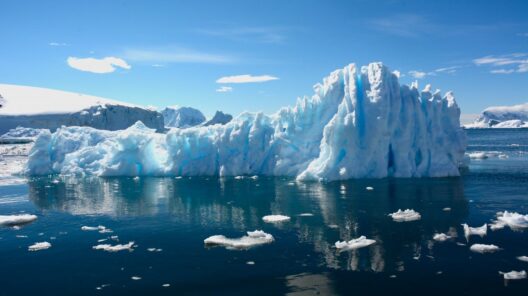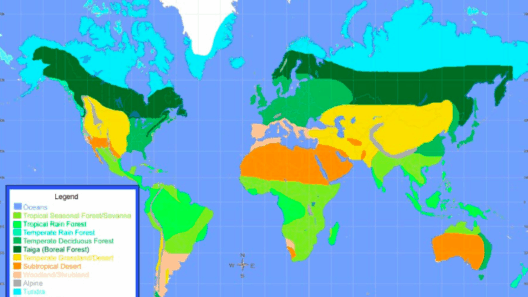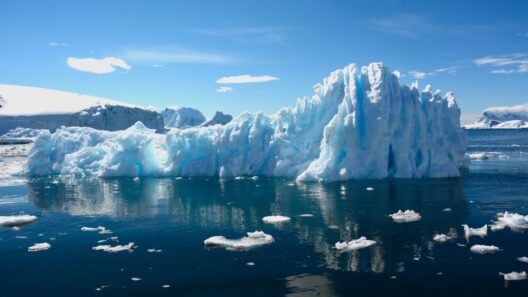In the contemporary discourse surrounding climate change, the intersection of faith and science often becomes a battleground. Particularly, the question arises: can a Christian authentically believe in global warming? This query begs exploration across theological, scientific, and ethical landscapes, ultimately unveiling a tapestry of interwoven beliefs and responsibilities.
At the heart of this discourse lies the Christian doctrine of stewardship. The notion of stewardship, deeply embedded in Christian teaching, emphasizes the responsibility of individuals to care for God’s creation. It conjures the image of a guardian assigned the monumental task of nurturing a garden entrusted to their care. Just as a diligent gardener tends to his blooms, so too must Christians be vigilant stewards of the Earth, safeguarding its fragile ecosystems from the ravages of pollution and climate change.
With the evidence of climate change becoming increasingly undeniable—manifesting as rising temperatures, erratic weather patterns, and melting polar ice caps—the link between environmental degradation and Christian ethics becomes apparent. The biblical narrative presents humanity as caretakers of the Earth, a position that intrinsically demands vigilance and advocacy in the face of threats to the environment. Thus, rejecting the reality of global warming can be viewed as a profound neglect of this divine mandate.
However, public opinion among Christians regarding climate change is not monolithic. Some individuals cling tenaciously to skepticism, often citing economic or political motivations. Here, it is crucial to dissect the dichotomy between faith and doubt. The metaphor of a ship navigating turbulent seas comes to mind. A vessel, sturdy yet susceptible to external forces, must rely on its compass—truth—to reach its destination. This compass invariably points towards veracity in science, particularly when bolstered by an overwhelming consensus among climate scientists. Ignoring the tide of data is akin to steering into a storm, a perilous choice for any sailor or believer.
Moreover, the narrative of creation, rooted in the Book of Genesis, speaks volumes to the symbiotic relationship inherent in the world. The world does not exist apart from humanity; rather, a reciprocal bond exists wherein the health of the planet directly correlates with human welfare. The poetic imagery found within scripture underscores this interconnectedness, illuminating the moral imperative for Christians to advocate for the Earth. Indeed, how can one profess love for the Creator and neglect the intricate and magnificent creation that emanates from Him?
This discourse deepens as one considers the implications of Christian love and justice. The teachings of Jesus advocate for the marginalized and oppressed—those who often bear the brunt of climate impacts. Communities residing in vulnerable regions are disproportionately affected by natural disasters, droughts, and rising sea levels, leading to questions of justice interwoven with ecological degradation. A belief in global warming transforms into an act of moral obligation, compelling Christians to stand in solidarity with those whose voices are too often silenced.
Intriguingly, the essence of faith also invites Christians to approach global warming with hope rather than despair. For many believers, the promise of renewal and restoration permeates the fabric of their faith. This perspective reframes the dialogue around climate change—not merely as a calamity to be lamented but as an opportunity for transformative action. It beckons the faithful to rise as agents of change, embodying a hopeful vision for a sustainable future, where technology and innovation converge harmoniously with theological ethos.
Furthermore, Christian communities have found unique avenues for addressing climate change. Initiatives such as planting trees, advocating for sustainable practices within congregational life, and engaging in dialogue about environmental policies exemplify proactive steps taken by the faithful. These actions not only showcase a commitment to creation care but also foster a communal sense of purpose, uniting individuals in a shared mission. The metaphor of a vibrant symphony comes to life, where each instrument—every voice—plays a vital role in producing a harmonious outcome for the planet.
Learning and adaptation are essential tenets of both faith and environmental activism. Christians are called to educate themselves on the intricacies of climate science and to participate in discussions that hone understanding and foster critical thinking. The ability to navigate the waters of misinformation becomes paramount, as does the responsibility to speak truth to power. In this struggle, the soul of Christianity can shine brightly, illuminating pathways toward sustainability.
Ultimately, the question of whether a Christian can believe in global warming resolves itself in the juxtaposition of faith and facts. It is not merely about belief, but about action—about embodying the principles of stewardship, love, and justice. The rhetoric of belief can evolve into a proactive stance on climate issues, where the faithful pursue tangible outcomes grounded in ethics and science.
In conclusion, the intersection of Christianity and the reality of global warming offers fertile ground for dialogue and action. The faith community has a pivotal role to play, one that necessitates engagement with both the spiritual and the scientific. As guardians of creation, Christians are called not just to believe in the imperatives of ecological stewardship, but to actively advocate for a sustainable and just world. With hearts attuned to compassion and minds open to truth, the faithful can indeed navigate the urgent waters of climate change—charting a course toward hope and restoration for generations to come.








